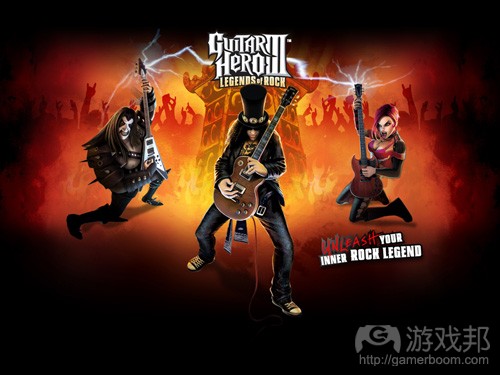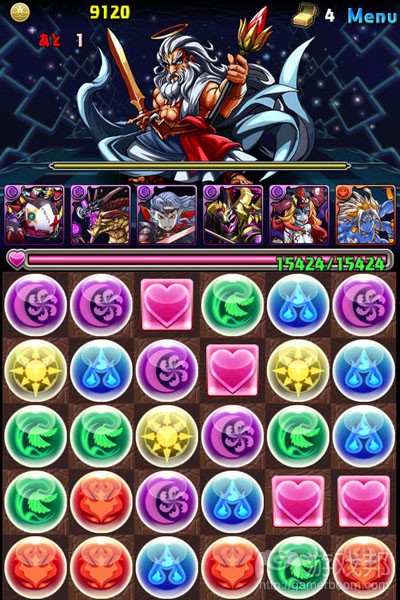GungHo市价对游戏公司和投资者意味着什么?
作者:Charles Huang
在2005年9月,当我和兄弟Kai希望VC能够投资300万美元去资助我们第一款游戏《吉他英雄》(面向PS2)的发行时,VC告诉我们:“游戏是受热门度驱动的业务,而我们并不能投资于受热门度驱动的业务。”当我们在想办法募集资金时,《吉他英雄》已经获得了GOTY(年度游戏)的提名了。上一年我们的公司RedOctane共创造了900万美元销售额以及300万美元利润。但那时我们却未获得来自VC的任何投资。那时候投资者对于游戏内容保持着消极态度。
别无选择,我和Kai只能拿出自己的钱去支持《吉他英雄》的发行。我们拿出了房子的第二次按揭,利用信用卡并向银行贷款以支持游戏的最初发行费用。其它情况也就是大家所了解的那样了。在2006年6月,RedOctane被动视收购,而《吉他英雄》也在累积销量中继续生成了40多亿美元。它最终成为了游戏产业中第二款年销量超过10亿美元的游戏(游戏邦注:继《魔兽世界》之后)。
在2009至2012年间,投资者的心态发生了巨大转变,而游戏工作室也开始获得了更多投资。像Zynga,Trion以及Kabam等新兴游戏公司都从VC手上筹集了大量资金去面向全新平台创造游戏内容。社交网站和智能手机上的用户增长也为社交和手机游戏带来了更多投资。而这些公司所面临的不同之处在于,投资者往往将它们当成是平台而非内容。我认为这也只是投资者证实自己投资理论的一种方法。
而在当前的2013年,投资者的心态又发生了转变,即再一次提防起游戏工作室或内容。几乎我所交谈过的所有VC投资者都表示:“游戏是一种受热门度驱动的业务。游戏是一个很难进行投资的产业。”而这种否定态度很大程度是受到Zynga股票上市后的表现的影响。当一家游戏公司的最高“估值”为100亿美元(在IPO)时,投资者便是时候转向其它游戏公司了。而现在Zynga的价值“只有”25亿美元,所以投资者便再次失去对游戏内容的信心。
投资者对于游戏的消极心态与我们在游戏宏观经济学中所看到的情况是不同的。有些游戏类别,如手机游戏便仍继续发展着。而手机游戏中的佼佼者也赚取了巨大利益,并且能够轻松地吸引许多VC的投资。Supercell以7.7亿美元估值而最终获得1.3亿美元的融资便是年轻公司在内容上获得巨大成功的典型例子。
尽管Supercell的估值非常惊人,但却仍比不上来自日本的GungHo Online Entertainment。
GungHo是基于怪物的三消类游戏《Puzzle & Dragons》(堪称手机游戏世界的“超新星”)的发行商和开发商。在2013年3月,App Annie的数据显示,《Puzzle & Dragons》在世界上iOS和Android平台上畅销游戏排行榜中均位列第一。令人惊讶的是,日本以外的大多数消费者和投资者甚至从未听说过这款游戏,直到我们听闻了它的高盈利率和市值。
GungHo Online Entertainment是一家在JASDAQ上市的的公司。根据Bloomberg,GungHo一年的股票回报率高达4000%,这一数值简直高得惊人。
GungHo当前的估值为151亿美元(截至2013年5月13日)。照这样下去的话,GungHo最终将拥有地球上任何一家电子游戏公司都不曾有过的最高市场价值。现在动视仍排在第一位,即拥有160亿美元的市价。GungHo甚至超越了任天堂,后者在经历了过去几年Wii和DS所面临的衰败后,现今市价为150亿美元。运营《魔兽世界》以及一些内部开发MMO游戏的中国在线游戏公司网易的市场价值为70亿美元。紧随其后的是韩国在线游戏巨头Nexon以及备受关注的艺电,它们的市价均为60亿美元。
GungHo4000%的回报率对于私人游戏公司和投资者来说意味着什么?
今天的游戏投资者更喜欢“平台”公司而非内容。技术投资者所遵循的一个经典原则是:“不要投资于只为赚钱的公司,而是投资于有头脑的公司。”如果你是一家游戏工作室,你就需要想办法将自己重新定位为一个“平台”,如此才能吸引投资者去听取你的推广,或者才能满足他们的需求。
获得了这个地球上任何产业、任何公司最多盈利回报的是GungHo这家游戏内容公司。投资者的观点当然没错,在游戏中的投资需要考虑热门度问题,但这些热门度将收获惊人的奖励。GungHo的成功告诉我们,游戏内容业务仍然具有巨大的盈利潜能,并能提供给投资者巨大的回报,而那些瞄准了优秀游戏及出色团队的少数投资者将有可能在未来大获成功。
现在应该是游戏产业中最让人兴奋的时候,并且开发者的面前仍存在着创造优秀游戏的大把机遇。不管怎样,优秀的游戏仍是最重要的。
(本文为游戏邦/gamerboom.com编译,拒绝任何不保留版权的转载,如需转载请联系:游戏邦)
GungHo Stock’s 4000% Run — What it Means for Game Studios and Investors
by Charles Huang
“Games are hit driven businesses and we can’t invest in hit driven businesses”. VCs told us that back in September 2005, when my brother Kai and I tried to raise $3M from VCs to fund the launch of our first Guitar Hero game on PS2. By the time we hit the fundraising circuit, Guitar Hero was already racking up nominations for GOTY (Game of the Year). The previous year our company, RedOctane, had generated $9 million in sales AND $3 million in profit. We raised exactly ZERO dollars from VCs. Investor sentiment at the time was very negative against game content.
Left with no other choice, Kai and I self-funded the launch of Guitar Hero. We took out second mortgages on our homes, borrowed money on our credit cards and whatever we could from banks to pay for the initial launch inventory. The rest is history. RedOctane was acquired by Activision in June 2006 and Guitar Hero went on to generate more than $4 billion in cumulative sales. It became the second game in the history of the industry to cross $1 billion annual sales (after World of Warcraft).
Between 2009-2012, investor sentiment swung the other way and game studios became fashionable investments. New emerging game companies like Zynga, Trion, and Kabam raised massive amounts of VC funding to build game content for new emerging platforms. White hot user growth on social networks and smartphones generated a frenzy in social and mobile game investments. A subtle (but key) difference with these companies is that investors often perceived them (right or wrong) as platforms, and not content. I would argue this perception was just a way for investors to justify their investment thesis.
Now in 2013, there has definitely been another shift in investor sentiment back against investing in game studios or content. Almost every VC investor I speak with is saying (again), “Games are a hit-driven business. Gaming is a tough industry to invest.” A lot of this negativity is driven by the performance of Zynga stock post IPO. When the highest “comp” for a game company was worth $10 billion (at their IPO), it was a great time to invest in other game companies. Now that Zynga is worth “only” $2.5 billion, investors are losing faith in game content again.
Negative investor sentiment in games does not necessarily match what we’re seeing in the macroeconomics of games. Some categories, like mobile games, continue to see strong growth. And the winners in mobile games are doing very well financially and have little trouble attracting lots of VC investment. Supercell’s recent round of $130 million on a valuation of $770 million is an example of incredible success in content for a relatively young company. By the way, can someone explain to me how the Finns became a sudden global gaming powerhouse?
While Supercell’s valuation is stunning, nothing compares to the phenomenon of GungHo Online Entertainment in Japan.
GungHo is best known as the publisher / developer of the monster / match 3 game called Puzzle & Dragons, a “supernova” in the mobile gaming world. In March 2013, App Annie’s data shows Puzzle & Dragons was the #1 highest grossing game in the world on BOTH iOS and Android. Amazingly, most consumers and investors outside Japan haven’t even heard of this game, at least not until recently when its profitability and skyrocketing market cap reached our shores.
GungHo Online Entertainment is a public company trading on JASDAQ (symbol 3765:JP). . A quick glance on Bloomberg shows the 12 month return on GungHo stock to be an astronomical 4000%. There may not be a hotter stock anywhere in the universe.
The current valuation of GungHo is USD $15.1 billion (as of May 13, 2013). At this rate, GungHo will eventually have highest market cap of any pure play video game company on the planet. Activision is #1 at $16 billion. This surpasses Nintendo, after suffering through a couple nasty years of decline on the Wii and DS, now worth $15 billion. Netease, the Chinese online gaming company that operates WOW and many internally-developed MMO titles, is worth $7 billion. Nexon, the Korean online gaming giant (also listed in Japan) and venerable Electronic Arts are both worth about $6 billion.
What does GungHo’s 4000% run mean for private game companies and investors?
Investors in games today like “platform” companies and not content. One of the classic tech investor axioms is, “Don’t invest in companies digging for gold, invest in the companies selling them picks and shovels.” If you are a game studio, you’re probably trying to reposition yourself as a “platform” in order to get investors to hear your pitch or just to satisfy their demands.
Meanwhile, one of the best financial returns for ANY company in ANY industry on the planet is coming from GungHo, a games content company. Investors are certainly right, that investments in games may depend on hits, but those hits reap incredible rewards. GungHo shows that the games content business can still be enormously profitable and offer great investor returns, and the few investors out there with an eye for great games and a talented team will be well positioned for success in the future.
This is maybe the most exciting time ever in the game industry, and the best opportunities are still in making great games. GREAT GAMES MATTER. Just ask the folks at GungHo. (source:gamasutra)









































 闽公网安备35020302001549号
闽公网安备35020302001549号